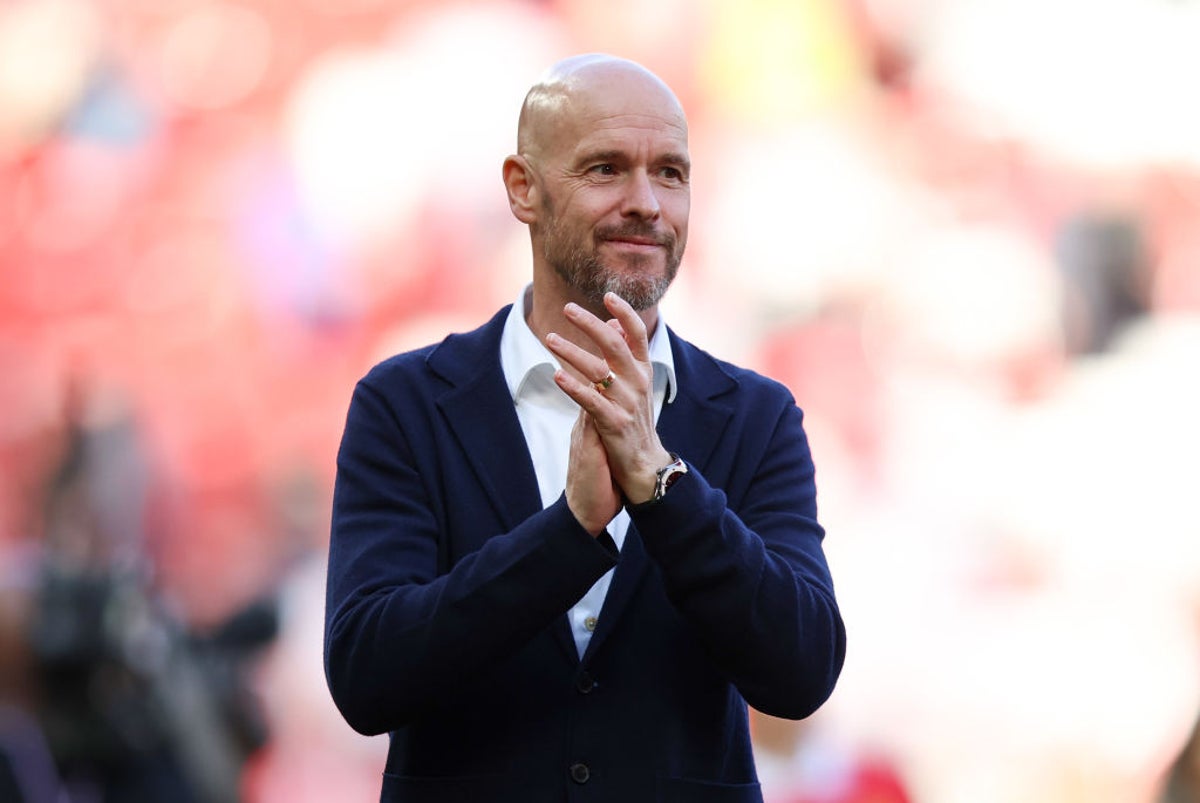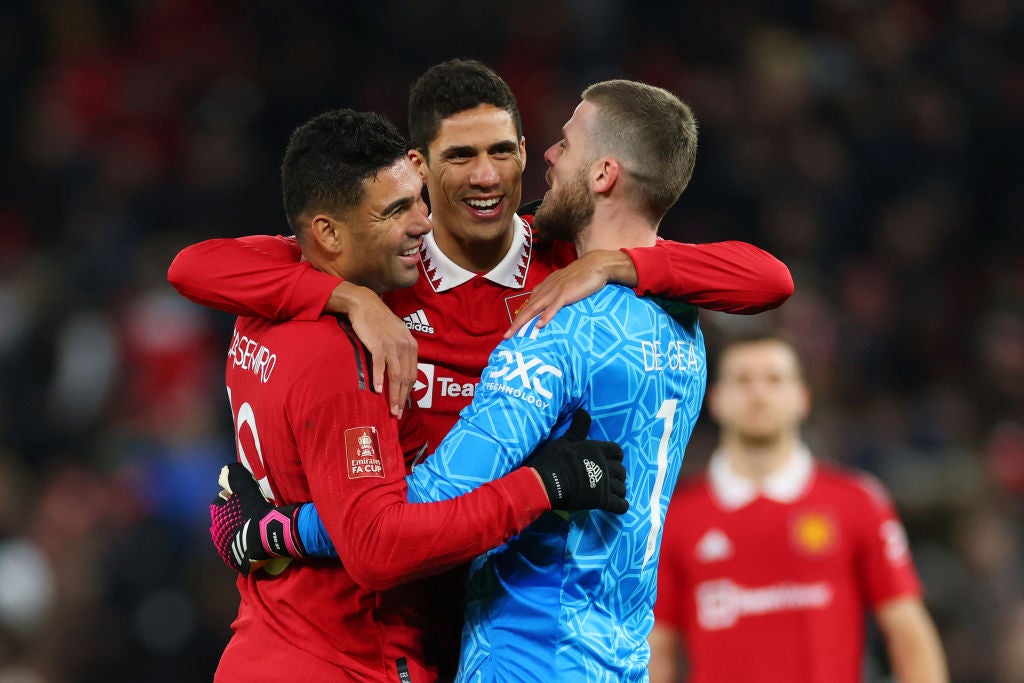
Even before this week’s last preparations for the FA Cup final, Erik ten Hag long realised he had to do something different. Managers like the Dutch coach and Pep Guardiola usually avoid referencing media narratives, in order to ensure the players stay focused on “the process”. Ten Hag knew that was impossible in this case, so it’s better to use it as motivation. It might even be all the more necessary given his Manchester United side had been flagging.
Going right back to the semi-final victory over Brighton, though, Ten Hag knew it was pointless to talk down the idea of stopping City doing a treble. He was well aware it means everything to the fans, so he is insistent his team will play with “everything”.
That is a message that has repeatedly been rammed home in the last week. United go into this with the sort of emotional intensity that many recall from Jose Mourinho’s better moments, but that can still go one of two ways.
City themselves would know that too well, from their own experiences of such fixtures before the 2008 takeover.
It shows how the course of history has gone a different way than many would ever have anticipated – not least Sir Alex Ferguson - as those 142 years of rivalry see a first-ever Manchester derby in an FA Cup final. For most of the living memory of that, United were so superior to City they didn’t have to even concern themselves with their neighbours. They were just fun to further beat down, especially en route to grander feats. The path to their domestic double, in 1995-96, involved a typical comeback win over City.
Far more meaningful history weighs over this match.
It could never have just been about United seeking to do a first domestic cup double – and just the fifth on record – or even the prize of lifting the oldest trophy in the sport, and one long associated with the club’s key moments. Nor is it about what victory means for the future of Ten Hag’s side.
It is all about preserving the greatest success in United’s history, and the feat that has most defined the post-Busby era of the club. “The treble” is one of a few precious factors that make United unique, all the more so for how it was delivered with a group of homegrown players that echoed the Busby Babes.
For City to equal it, and especially by beating United in the final that matters the least to them, would be more symbolic than either “the 6-1” or the FA Cup semi-final of 2011. This is where we are now, though, and how history has turned just as the two clubs play out this epochal match.
It is now City that are more concerned with greater aims, and United that have become obsessed with just stopping their rivals.

It is also why another FA Cup final has been repeatedly mentioned this week, fittingly from a similar period when United were between eras of glory. That was the 1977 showpiece, as Tommy Docherty’s burgeoning side faced an identical situation against Liverpool. Bob Paisley’s side had already claimed the league and were preparing for a European Cup final against Borussia Monchengladbach.
They won that 3-1 but wouldn’t win the FA Cup, as Jimmy Greenhoff scored to give that United side a 2-1 win and the eternal legacy as “treble busters”. This has the same stakes.
It is also why United are very much the story to this game, especially after so much focus on City’s brilliance, if also the Premier League charges that cloud their future.
The situation over the next few days is much clearer. While City would derive great satisfaction in beating their neighbours to win a double and set up the treble, defeat would be forgotten if they won the Champions League the following week. That is what everything is building up to. That is the one they want above anything else.
This will not define their season, even if it will decide the treble.
The very preparation for Wembley has been with Istanbul in mind, the staff looking at minutes played and fitness in the way they wouldn’t have to if the FA Cup final was the last game.

For United, this is the be-all and end-all of the campaign, and a potential landmark moment. The current squad are keenly aware of this. Even allowing for the economics of the modern game, most of these players are at United because of the prestige of the club. They want to preserve what makes it special.
Casemiro is understood to have internalised it. Marcus Rashford has been talking about it. Ten Hag has similarly pressed all of this home.
Perhaps the biggest question about the game is whether such emotional intensity will influence the tactical approach. Does Ten Hag go with it, or use it in a more restrained way?
This is again why United are more the story, or at least where more of the intrigue lies.
Just as we know what City prioritise, we also know how they’ll set up – at least in terms of imposing their game on United.
Ten Hag would ideally play something much closer to what City do, but knows his team are still some way off that. He also knows they've been some way off the accelerated level of January-February when they beat Guardiola’s side.

This is why the stakes of the treble involve useful motivation. It might also mean Ten Hag has to go with something much more tactical.
The absence of Lisandro Martinez is key, too. He would have been seen as important to drawing Erling Haaland into a scrappier battle.
All of this is another reason why this marquee match may not be that pretty. The Metropolitan Police have similarly taken necessary precautions given the train strike and the precedent set by some of the fan issues that surrounded the 2011 FA Cup semi-final.
There are undeniably heightened emotions around this game. There are also heightened stakes.
This is a rare case where one of the teams wants their players to be even more aware of those.







